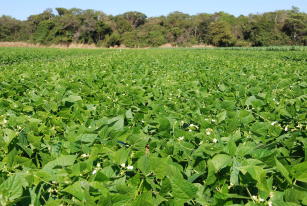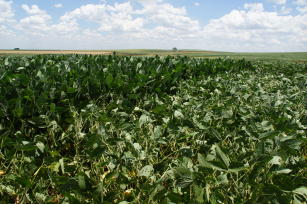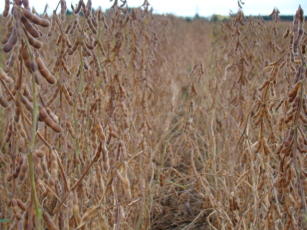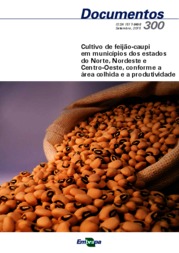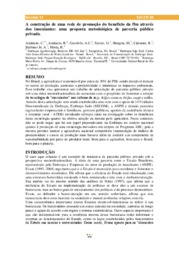Inoculants and sustainability in agriculture: good for farmers, good for Brazil
Inoculants and sustainability in agriculture: good for farmers, good for Brazil

Photo: HORIKAWA, Marisa Yuri
Agriculture is responsible for about 30% of the Brazilian Gross Domestic Product (GDP), and some of the challenges of the sector include: reducing production costs, increasing productivity and minimizing environmental impacts. In this scenario, the adoption of inoculants based on the process of biological nitrogen fixation (BNF) is quite welcome, once it is the only natural biological process of obtaining nitrogen, in contrast with the use of nitrogen fertilizers that release about a ton of greenhouse gases for every one hundred kilos applied to the soil.
Contributing to increasing the use of inoculants in soybean, bean, cowpea and maize crops was the main objective of this project, aiming at the development of a low carbon agriculture, according to the commitments stipulated by the ABC Plan (Low Carbon Agriculture - or Sector Plan for Climate Change Mitigation and Adaptation for the Consolidation of a Low Carbon Economy in Agriculture).
For this, a network was created to disseminate the benefits of this technology and encourage farmers to adopt it. For that purpose, the project counted on the support of 14 of Embrapa's Decentralized Units (Agrobiology, Western Agriculture, Eastern Amazon, Rice and Beans, Cerrados, Temperate Agriculture, Environment, Mid-North, Maize and Sorghum, Soybean, Wheat, Agrosilvopastoral, Rondônia, and Semiarid Agriculture), beyond its headquarters and of the Secretariat of Communication of the Company. It also included the participation of several partners, such as corporate farmers, family farmers, public managers, technical assistance and agricultural extension agents, and managers of cooperative organizations.
Contributing to increasing the use of inoculants in soybean, bean, cowpea and maize crops was the main objective of this project, aiming at the development of a low carbon agriculture, according to the commitments stipulated by the ABC Plan (Low Carbon Agriculture - or Sector Plan for Climate Change Mitigation and Adaptation for the Consolidation of a Low Carbon Economy in Agriculture).
For this, a network was created to disseminate the benefits of this technology and encourage farmers to adopt it. For that purpose, the project counted on the support of 14 of Embrapa's Decentralized Units (Agrobiology, Western Agriculture, Eastern Amazon, Rice and Beans, Cerrados, Temperate Agriculture, Environment, Mid-North, Maize and Sorghum, Soybean, Wheat, Agrosilvopastoral, Rondônia, and Semiarid Agriculture), beyond its headquarters and of the Secretariat of Communication of the Company. It also included the participation of several partners, such as corporate farmers, family farmers, public managers, technical assistance and agricultural extension agents, and managers of cooperative organizations.
Status: Completed Start date: Tue Jan 01 00:00:00 GMT-03:00 2019 Conclusion date: Thu Dec 31 00:00:00 GMT-03:00 2020
Head Unit: Embrapa Agrobiology
Project leader: Cristhiane Oliveira da Graça Amancio
Contact: cristhiane.amancio@embrapa.br

